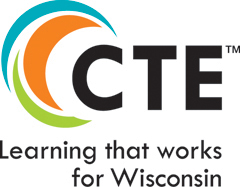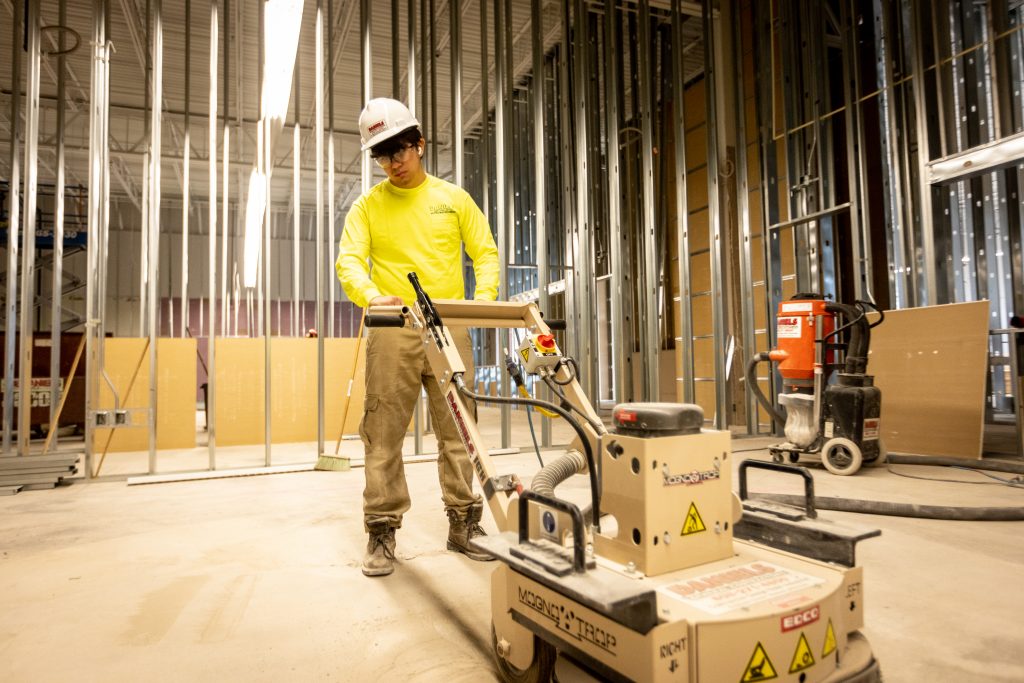empowering Wisconsin’s workforce
February marks an essential occasion for educators, policymakers, and professionals alike: Career and Technical Education (CTE) Month. Throughout this month, we celebrate the invaluable contributions of CTE programs in preparing individuals for high-demand careers and fostering economic growth.

impact on Wisconsin construction
In the construction industry, these CTE programs are essential to filling high-demand construction roles. Wisconsin’s construction sector is a cornerstone of its economy, employing thousands and driving growth across various communities. According to the U.S. Bureau of Labor Statistics, the construction industry accounted for approximately 137,300 jobs in the state in December 2023, with projections indicating steady growth over the coming years.
CTE programs play a crucial role in supplying the construction industry with skilled workers. Through hands-on training, technical instruction, and industry partnerships, these programs equip students with the knowledge and expertise necessary to thrive in construction-related careers. In Wisconsin, CTE initiatives are implemented through a network of high schools, technical colleges, and apprenticeship programs, providing pathways for individuals to enter and advance within the construction industry.
One notable aspect of CTE in Wisconsin is its alignment with industry needs. Programs are developed in collaboration with local businesses, trade associations, and workforce development boards to ensure that curriculum content remains relevant and responsive to evolving industry demands. By integrating real-world experiences and industry certifications into the educational framework, CTE programs bridge the gap between classroom learning and on-the-job requirements, thereby enhancing graduates’ employability and career prospects.

a pathway to success
The impact of CTE on the construction industry workforce is evident in the statistics. According to a report by the Wisconsin Technical College System, 96% of technical college graduates in construction and architecture-related programs were employed following graduation, with median annual earnings surpassing $50,000. Moreover, apprenticeship programs facilitated through CTE pathways offer participants the opportunity to earn while they learn, combining on-the-job training with classroom instruction and leading to rewarding careers with competitive salaries and benefits.
Beyond individual career success, CTE serves as a catalyst for economic development and prosperity in Wisconsin. A skilled workforce is essential for attracting investment, supporting infrastructure projects, and driving innovation within the construction sector. By investing in CTE initiatives, policymakers and industry stakeholders contribute to the long-term vitality of the state’s economy, fostering sustainable growth and resilience in the face of economic challenges.

our commitment to CTE
As we commemorate Career and Technical Education Month, it is imperative to recognize the ongoing efforts to strengthen CTE programs and expand opportunities for individuals pursuing careers in the construction industry. Initiatives such as dual enrollment programs, industry apprenticeships, and work-based learning experiences play a pivotal role in preparing the next generation of skilled workers and equipping them with the tools they need to succeed in a competitive job market.
Daniels is committed to the continuing success of CTE programs, providing opportunities for #buildingbetter careers.
Meet our Youth Apprentices!
Joshua – Middleton High School – Masonry/Concrete
Carson – Belleville High School – Carpentry
Bradyen – Monona Grove High School – Carpentry
